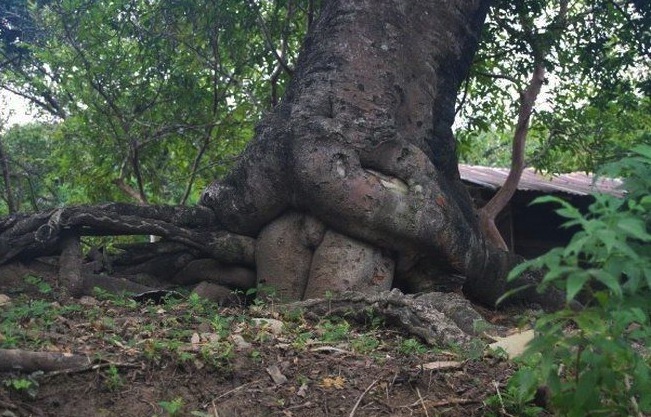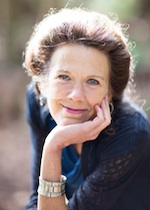Caffyn Jesse
Symposium Lecture:
(Please click or scroll down)
Caffyn Jesse is a widely-respected teacher of sex, based in Canada on Salt Spring Island. She writes and speaks widely about sex and related topics and is the author of Orientation: Mapping Queer Meanings, Erotic Massage for Healing and Pleasure, Art and Survival and other works that explore intersections of sex and sexual identity with culture, environment, and social justice. She teaches the Canadian Professional Somatic Sex Educator Training with Dr. Liam Snowdon. The material in this presentation is partially drawn from their co-created project.
See her website at www.erospirit.ca.
Queer Embodiment: Shapeshifting, Pleasure and Wildness
What is queer embodiment? Out beyond LGBT, what does embracing a queer identity make possible? Epochal oppressions and daily microaggressions are embodied in our autonomic nervous system function, and even epigenetically. With body-based exercises and experiences, we can learn to unwind oppressions from our cells. We can explore the magics of queer folks in the world, and harness this power to support our personal and sexual development. We can create new forms of relationship, and seek to transform the cultures that would confine us. We can cultivate queer pleasures in ways that are grounded in empowered boundary awareness. As we disentangle compulsions and entitlements, we can co-create possibilities for shapeshifting and wildness. We can forge new relationships with the natural world, and learn to make magic with flesh.
Caffyn notes that queer identification does not automatically make us politically radical. Indeed conventional LGBT civil rights activism scarcely challenges the dominant culture, seeking only integration and naturalization for a difference that makes no difference. But queer is a constellation of cultural meanings that invites us to opposition. Queer bodies can be sites of radical disharmony with various sites of oppression: gender, morality, the patriarchal nuclear family, the prevailing culture of nature, and white racial supremacy. Queer, in this sense, is an imaginative and biophysical engagement with possibility. Caffyn follows Foucault, who comments, “We have to understand that with our desires go new forms of relationships, new forms of love, new forms of creation. Sex is not a fatality; it is a possibility for creative life.”
In the consideration of alternative, utopian communities, queer bodies occupy a unique space. Queer community gives us a name and a home, though it scarcely exists. No institutions support it; no place defines it; no spokesperson can represent it. The community is “an ephemeral, woven network of belonging” (Aaron Betsky) that depends on our participation. Queer community is freely chosen instead of compulsory, broad and free-wheeling instead of narrow and restricted. Embodying queerness in everyday lives and relationships, we continually weave both self and community.
Caffyn will describe queer embodiment practices from creative arts, ecosexual activism and Somatic Sex Education, and show queer images from ancient and indigenous cultures. Participants will play with writing their own queer theory, and cultivate queer sexual energy. They will leave with a sense of how queer embodiment potentially transforms personal and social relationships, and with a taste of embodiment practices that invite new ways of acting, feeling, relating and knowing.
Photo: © unknown




